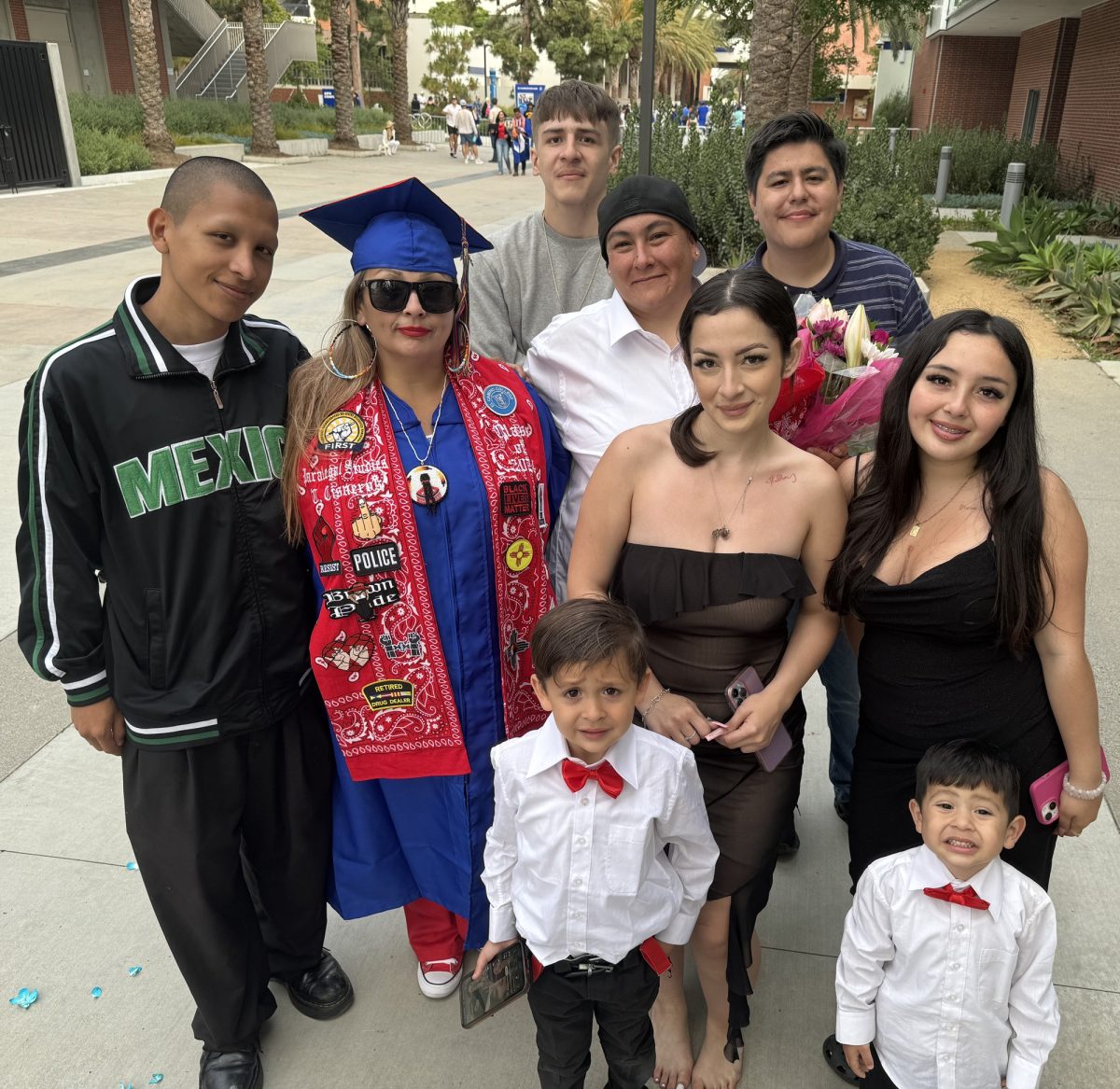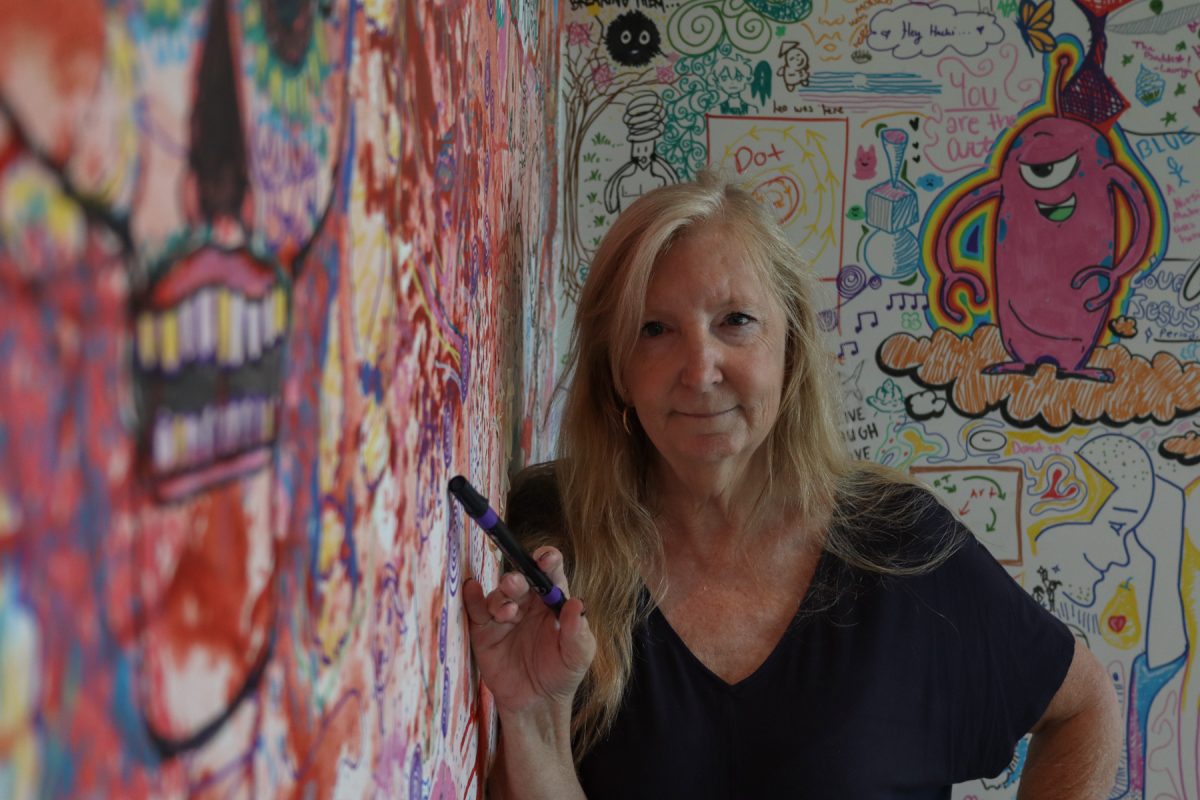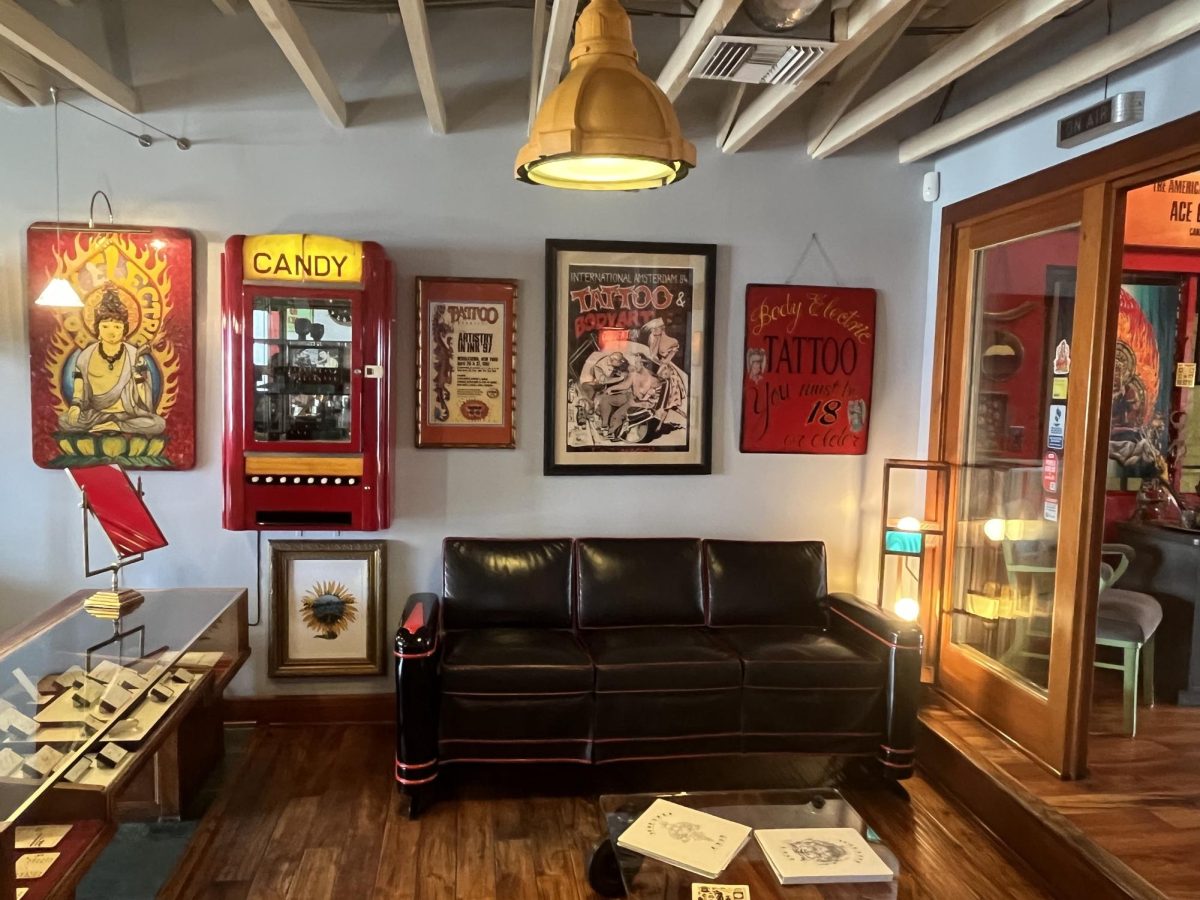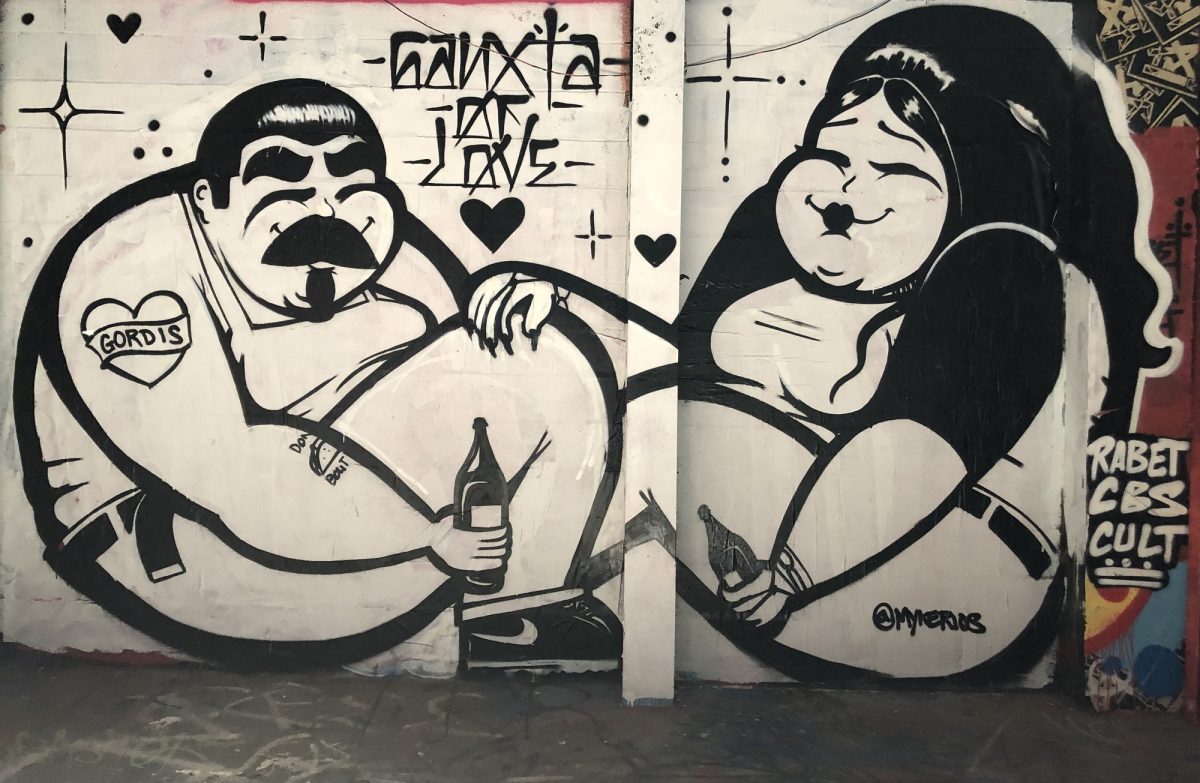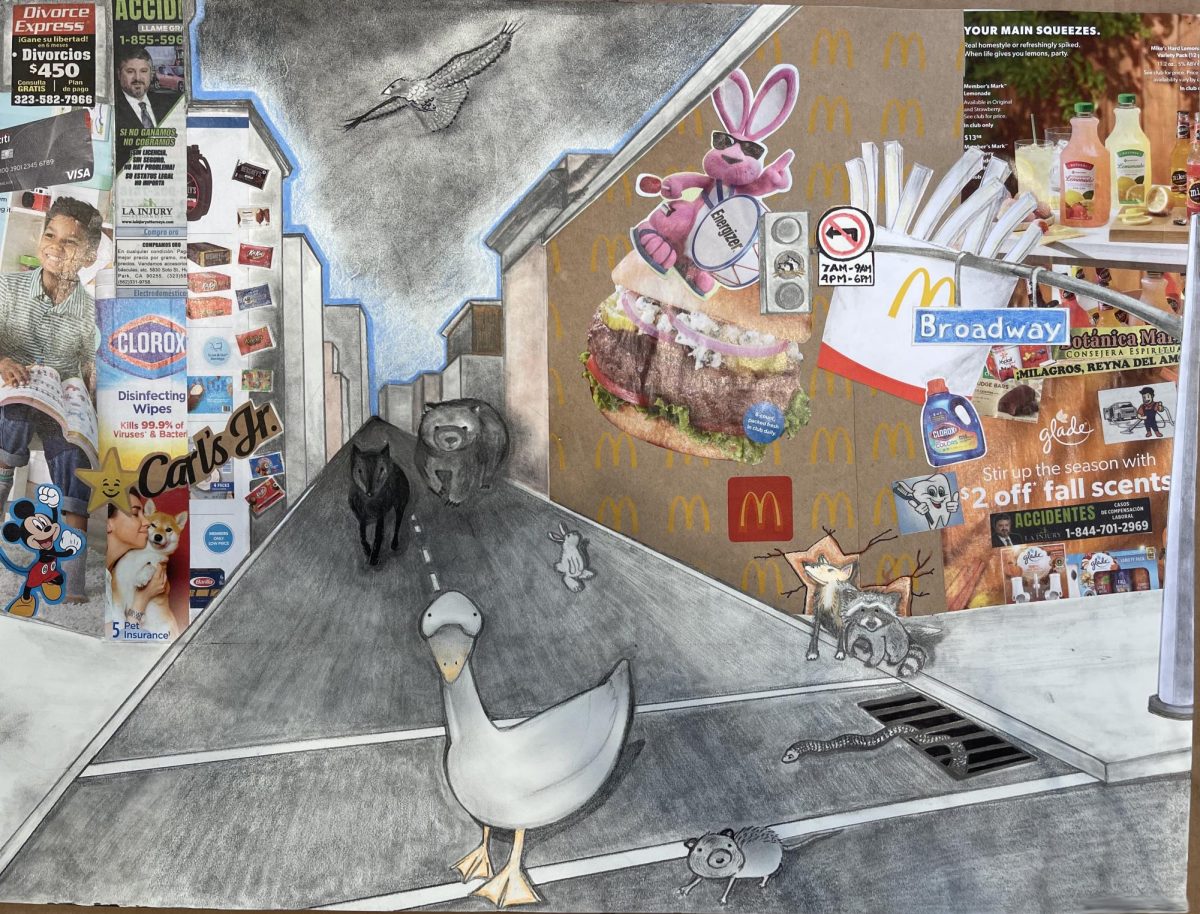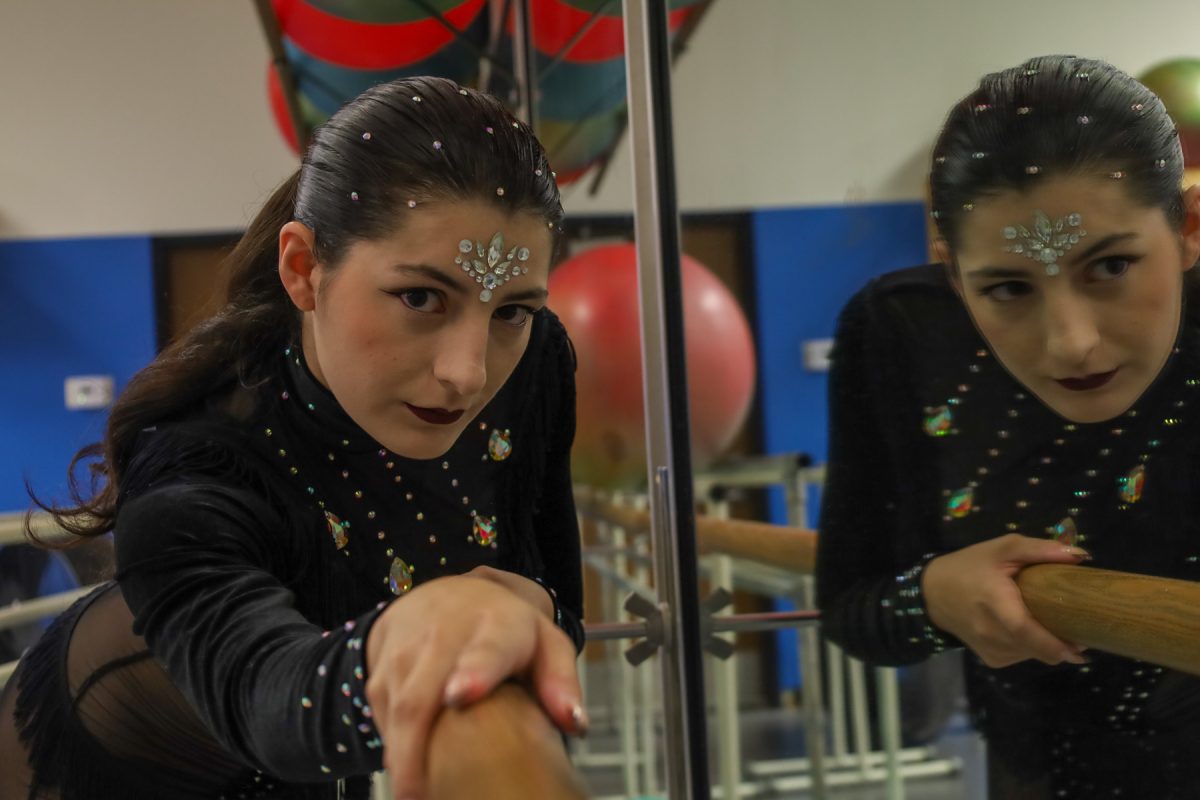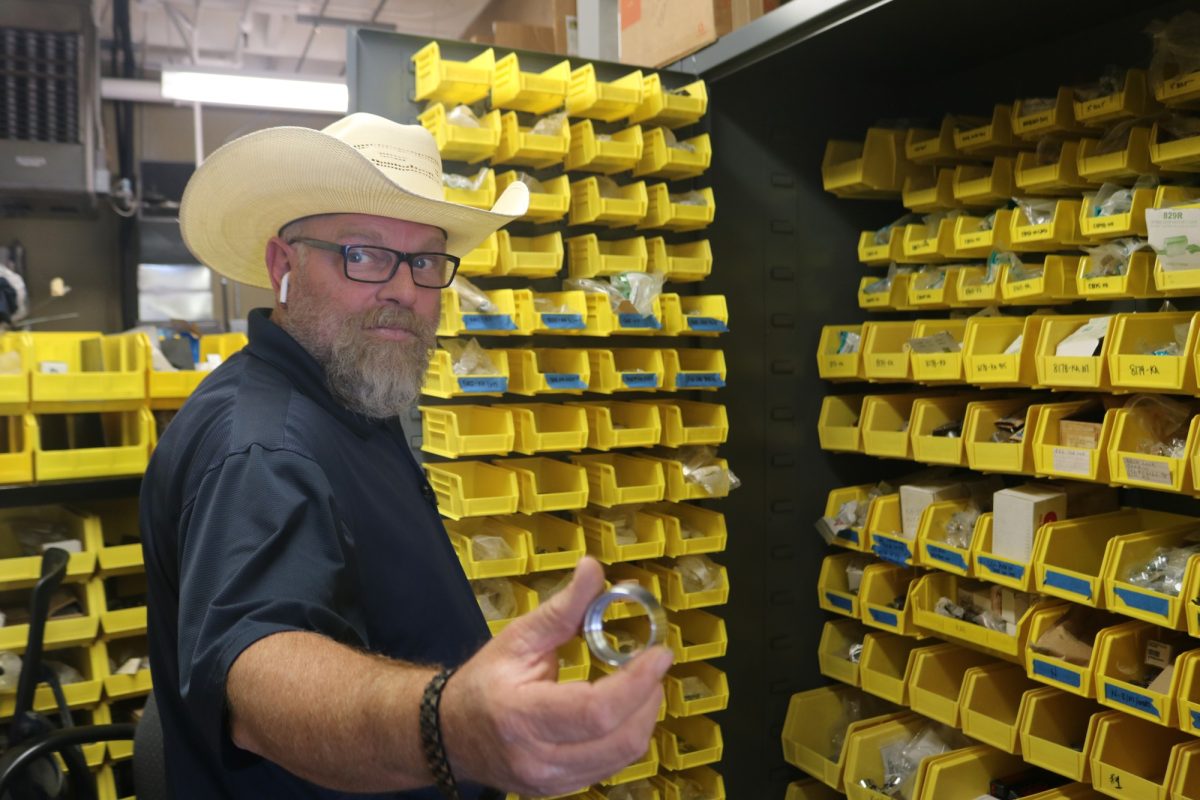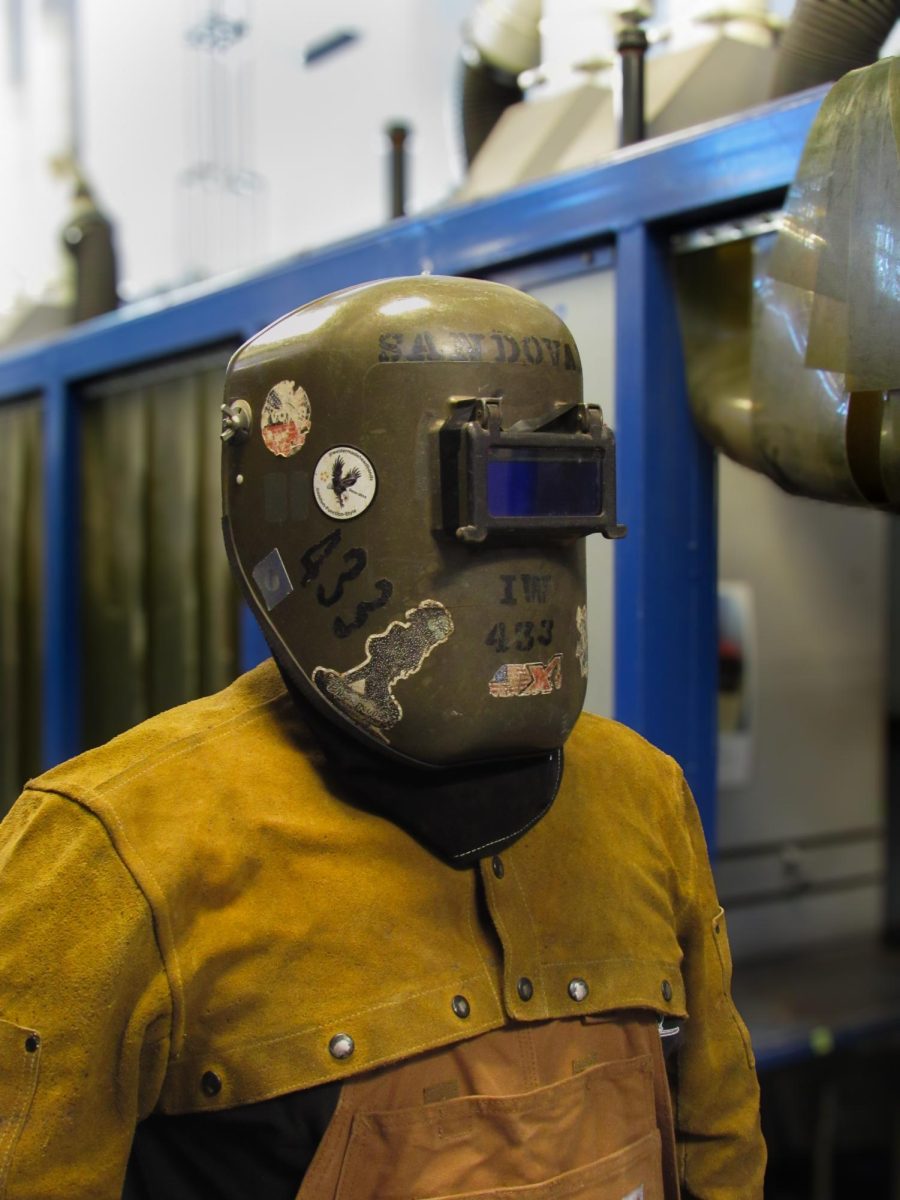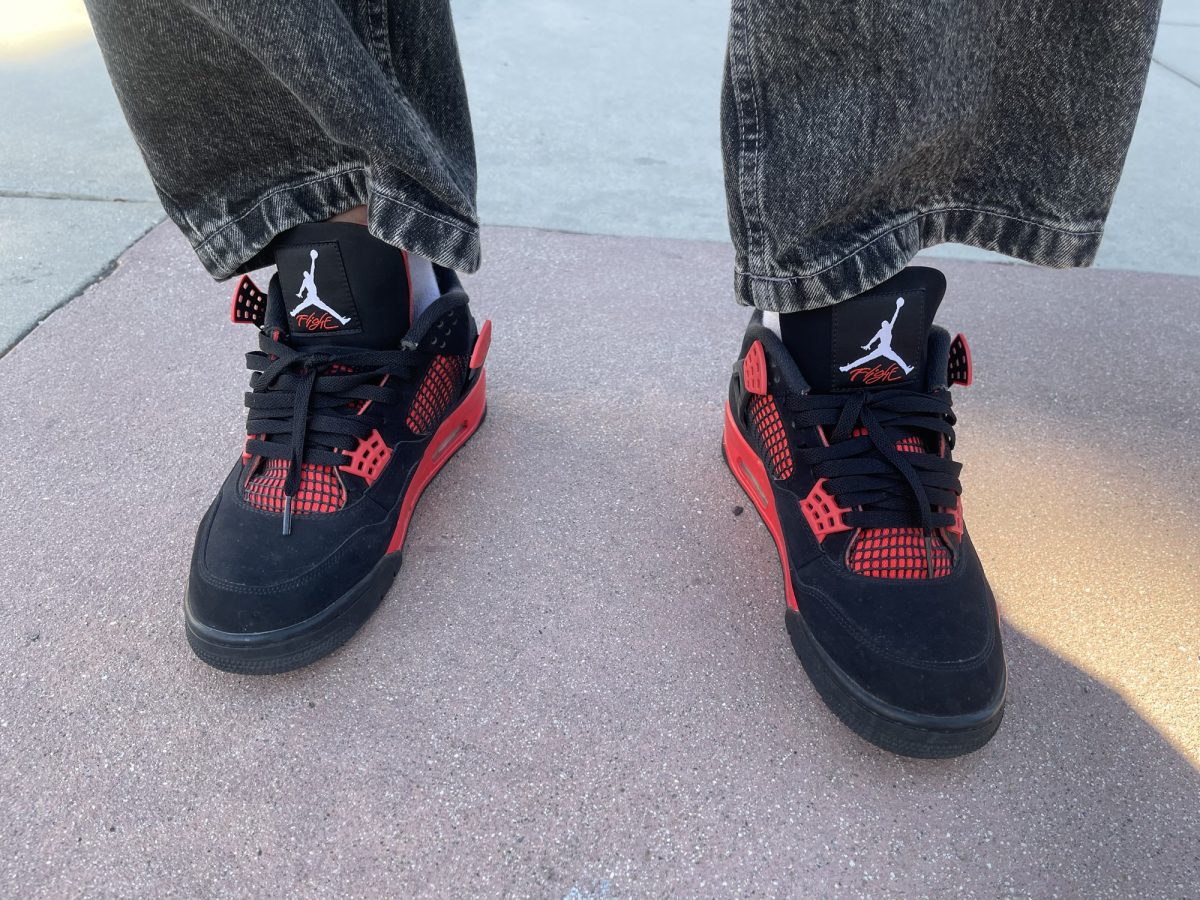Seventeen years ago, Cass Cisneros stood on the sidewalk outside the North Hollywood office of the Los Angeles County Department of Children and Family Services (DCFS), terrified to step inside with her four-year-old daughter, Savannah.
Earlier that day, DCFS called to say they needed an updated photo of the toddler and ordered Gonzalez to come to the office before 5 p.m.
But Cisneros didn’t trust the agency.
She froze at the building’s entrance as memories of her own childhood in DCFS custody flooded her thoughts. Inside, an intimidating crowd was waiting for her, including the director of the area office, the deputy director, a social worker and two, armed security guards.
They glared at her.
One security guard placed the palm of his hand on the butt of his holstered gun.
“I dropped to my knees and told my daughter that she would probably have to stay with strangers that night,” Cisneros said, crying as she recounted the event.
“Be strong. Mommy loves you. This isn’t your fault,” she added. “I won’t stop fighting until I get you back.”
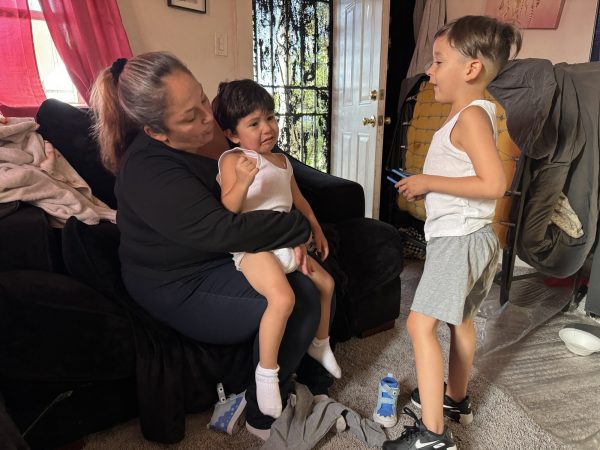
The social worker, wearing a business suit and an angry face, pushed Cisneros aside and rushed greedily toward Savannah.
In a blur of confusion, the rest of the DCFS staff surrounded her. They described allegations and the start of an investigation, that they were going to remove her daughter from the home, that they would not consider her mother or grandmother as a temporary placement.
Over their shoulders, Cisneros tried to keep an eye on her daughter.
“We’ve never been apart,” she said, pleading.
But in a flash, the DCFS social worker and her daughter were gone.
Cisneros regained custody of Savannah the next day, and eventually won a civil lawsuit against DCFS for misconduct.
Still, the efforts to pursue a complaint against LA County subsumed her life for months.
Her education and career dreams were sidelined, and for nearly two decades, Cisneros gave up on finishing college.
Then, in the past few years, Cisneros started to hear about an increase in support for system-impacted youth on college campuses. She enrolled at El Camino, where she has received support from Guardian Scholars, one of two ECC programs serving students impacted by foster care.
And in June, Cisneros, now 40, stood among the El Camino College graduating class of 2024, having earned her paralegal degree and real estate certificate.
She is back on campus this fall taking courses in sociology and Native American history while she waits to hear from universities on her hopes to transfer and eventually earn a law degree.
Her dream is to establish a “west side connection” to provide families legal representation, resource referrals and opportunities to organize for system change.
“I have been working hard to help other families who lose their children,” Cisneros said. “Getting my paralegal degree and eventually going to law school will give me the skills I need to do more.”
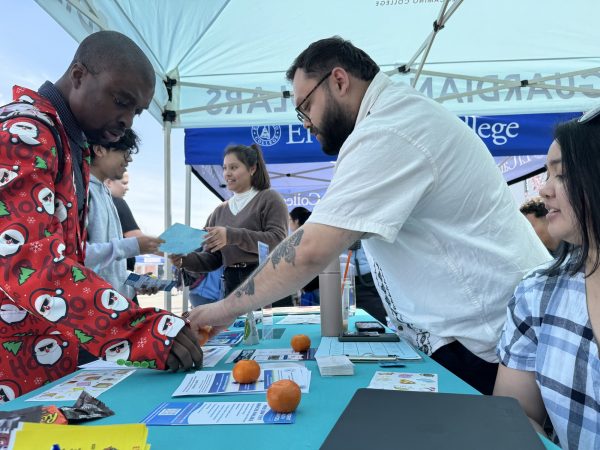
Cisneros credits the support she got from Guardian Scholars for helping her to graduate, including funds to cover student fees, books and food. Each week, Guardian Scholars provides a $40 card to students that can be used to purchase food at one of the on-campus vendors.
El Camino student Wesley Marshall, 19, is studying mechanical engineering and history. He was also able to benefit from scholarships and academic counseling through Guardian Scholars.
“Foster youth have different upbringings than most others,” Marshall said. “Without a secure family, it can be hard for them to find people to connect with and support one another. This can cause them to be disconnected from the educational system.”
Program participants can also get coaching to navigate the complex processes of enrollment, registration, financial aid and scholarships; workshops covering everything from budgeting to time management; and peer support from other students who have experienced similar challenges.
“Students deal with financial and housing insecurity. A lot don’t have a place to cook meals, a place to eat, or a way to finance food necessities,” Guardian Scholars success coach Alberto Navarro Zepeda said.
Some students are also eligible to be a part of Next Step, a companion program to Guardian Scholars started in fall 2023.
The program provides co-enrollment in the Extended Opportunities Programs and Services (EOPS) program, enabling students to access additional financial and counseling services including book and supplies vouchers and thousands of dollars in additional cash aid.
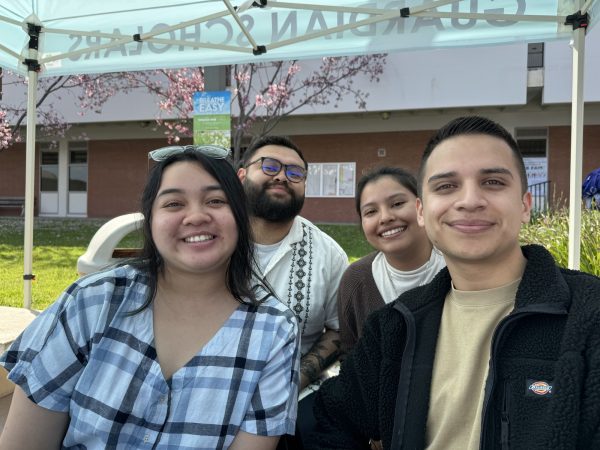
Next Step success coach Rozlind Silva said that traditionally, foster students couldn’t always meet the eligibility requirements for EOPS, including having to maintain a minimum number of units or a specific grade point average.
So, Next Step provides current and former foster youth the flexibility needed to access the EOPS program.
In spring 2024, more than 60 El Camino students participated in Guardian Scholars and/or Next Step.
Marshall said many people don’t know about Guardian Scholars or Next Step, and this leads to greater isolation. Similar programs support current and former foster youth on a growing number of community college, Cal State and UC campuses. He urged colleges to better publicize available resources and support.
“Had I not served as a student ambassador, I wouldn’t have known about it [Guardian Scholars], which would have led me to not join a cohort for people similar to me,” Marshall added.
Addressing generational trauma
At the moment L.A. County took her daughter, Cisneros crumbled to the DCFS office floor and balled up into a fetal position.
It was the worst day of her life in a lifetime of worst days.
She struggled to breathe.
“It felt like the whole world disappeared under my feet,” Cisneros said. “Everything switched to slow motion, the walls were closing in and the lights were dimming, almost as if I was coming in and out of consciousness.”
Her family had to drag her lifeless body outside.
As a child and teen that had cycled through both foster care and juvenile hall, Cisneros promised herself that her own children would never suffer those experiences.
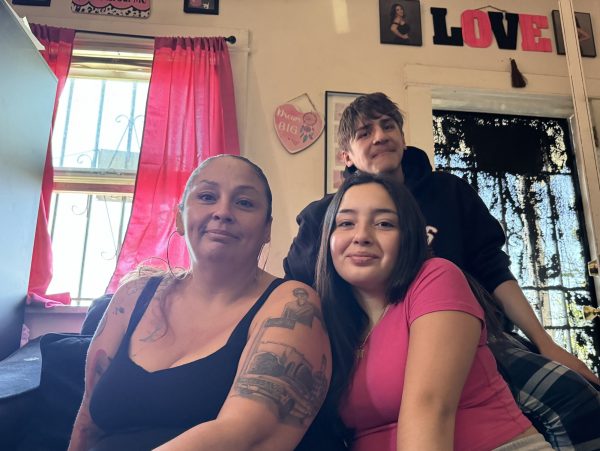
She still carries the trauma of her own childhood and the pain of losing Savannah to the system, even for only one day.
Recounting the details of Savannah being taken into DCFS custody, Cisneros begins to cry. Her five-year-old son, Moises “West” Cisneros, notices and tries to comfort her.
When she tells him she is OK, he pushes back. “But why are you crying?”
“Sometimes it’s OK to cry about things that happened,” Cisneros said to her son.
But Cisneros said it’s rare for her to share her life experiences, let alone to be given the space to discuss them in college.
A focus of Guardian Scholars – and other programs on campus aimed at supporting students who have faced greater discrimination – is to enable students to realize their educational goals without discounting or hiding the totality of who they are.
“Intersectionalities, identities and experiences are invisibilized,” Silva said. “A student might have a dad who was deported, or a mom who was incarcerated and those realities aren’t evident. We want to meet students where they’re at and support them through those experiences.”
Guardian Scholars success coach and USC graduate student Lara Colindres said a lot of success coaches choose education as a field to address inequity. She added that community college leaders who create policy should “hear the voices” of students.
“You never know what a person is going through,” Colindres said. “Advocating for students is what we are here for.”
Zepeda hopes college administrators will provide greater resources to Guardian Scholars and similar programs that support students who are often discouraged from attending college.
“College staff have to be involved with each person – not on a surface level where you spotlight one student – but where multiple students’ voices are heard. We can guess what our students want. But if it’s not coming from the students directly we might not be creating the policies or programs or pushing for the changes that our students actually need,” Zepeda said.
Zepeda is a graduate student in the school counseling program at Cal State Long Beach. He eventually wants to work as a school counselor for students who cross the U.S.-Mexico border every day to study in the U.S.
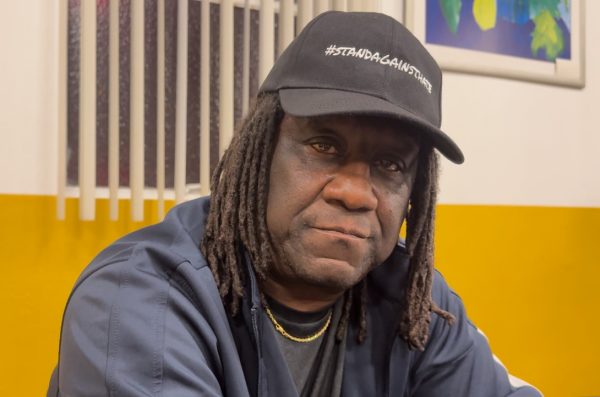
Otho Day worked for DCFS for over 31 years, where he served as a social worker and unit supervisor. Eventually he managed several programs, including family preservation tasked with keeping families together and independent living programs for youth exiting the system.
He urged college administrators to increase support for programs like Guardian Scholars and Next Step.
“Youth need real support, commitment, and dedication,” Day said. “They [administrators] have to understand that student frustrations have to be met with patience, access to tutoring and extra counseling, and a whole lot of understanding.”
These are the reasons college students are disappearing from campuses, Day said. He emphasized that support programs for marginalized students are essential to keeping colleges open and accessible for everyone.
“Usually, a child who has been molested or severely abused by too many people in their life is not going to succeed in college without addressing those issues,” he added.
Marshall said colleges and universities need to better publicize programs available on their campuses, and also to focus on providing housing as an essential service.
“I believe so many current and former foster youth don’t graduate due to their lack of knowledge of resources coupled with them not having the long-term housing and support to pursue education for long periods of time,” he said.
Colindres agreed that one of the biggest struggles for system-impacted youth is housing, especially given that foster youth might have lost the family network that many students count on for housing, emotional and financial support.
A report published by California’s Legislative Analyst Office revealed that more than half of the state’s community college students face housing insecurity – more than double the rate at Cal State and UCs – with 25% having experienced homelessness.
According to the US Interagency Working Group on Youth Programs (IWGYP), composed of representatives from 13 federal departments and 12 federal agencies, nationally 31% of former foster youth experience homelessness by the age of 26.
Healing from a lifetime of hurt
On a warm afternoon in May, Cisneros was perched on the concrete porch of the small stucco house she rents in Inglewood.
She lives here with her five children, whose ages range from two to 20.
Her silver hair was pulled up into a high ponytail. She was wearing a men’s black undershirt, jeans and black vans.
Her face was clean and clear with only a touch of eye liner and dark mascara, while her eyes conveyed the wisdom and exhaustion that only a single mom knows.
The front yard was a patchwork of dirt, toys, two tricycles, a plastic playground slide and sparse grass struggling to survive amid the competition for air and sun.
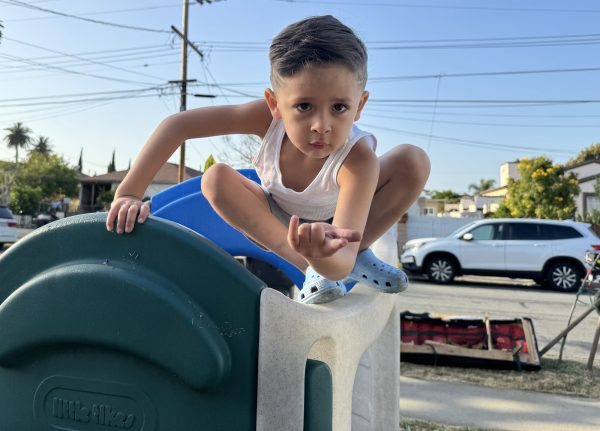
Cisneros yelled at Moises to “stay on this side of the sidewalk.”
The love and pride she has for her children were on full display. Framed photos and school awards covered the living room walls. Crayon sketches were stuck haphazardly to the refrigerator. The tattoos that cover her arms include colorful replications of drawings that her children made when they were younger.
A new tattoo on her upper left arm portrays her grandmother, the most significant caregiver in Cisneros’s life.
“My grandma’s house was peaceful,” she said. “She didn’t drink or do drugs. She gave me money for school lunch. At her home, I had access to food all the time.”
Cisneros said she was removed from her mom’s house seven or eight times. She measures the time she spent with her grandmother by grades.
Exposed to domestic violence and drugs at home, Cisneros was impacted by police calls and DCFS custody early and often.
“My mom was an alcoholic and she couldn’t take care of us,” she said. “My stepdad was always very violent. He was a heroin addict and abused my mom.”
Starting at the age of seven, she took care of her two little sisters.
“I would cook for them, I would bathe them. When they got older I would walk them to school,” Cisneros said.
When her stepfather went to prison, her mom would get sober. But when he was out, Cisneros said she and her sisters would be taken into DCFS custody.
Her grandmother couldn’t show up to court, because she didn’t drive. So, she couldn’t get custody of her grandchildren.
LA County DCFS cases are heard in Edelman Children’s Court in Monterey Park, a two-hour bus ride from the west side home where her grandmother lived.
Day said keeping youth in family care whenever possible is essential to their wellbeing.
“In court, they talk around the child, about that child with little to no conversation with that child,” Day said.
He emphasized that families who can’t attend court or manage all the bureaucratic requirements to qualify as caregivers shouldn’t be excluded as foster homes.
“DCFS is not going to reform itself,” Day said. “The outside community has to come in strategically and make DCFS change its function and style.”
Cisneros said she started getting into trouble when the court assigned her to group homes and placements instead of her grandmother’s.
She bounced from foster care to her mom’s house and back again.
“I would party all night, run the streets and make sure I came home in time to take my sisters to school. Then, I’d sleep all day until it was time to pick them up,” she said.
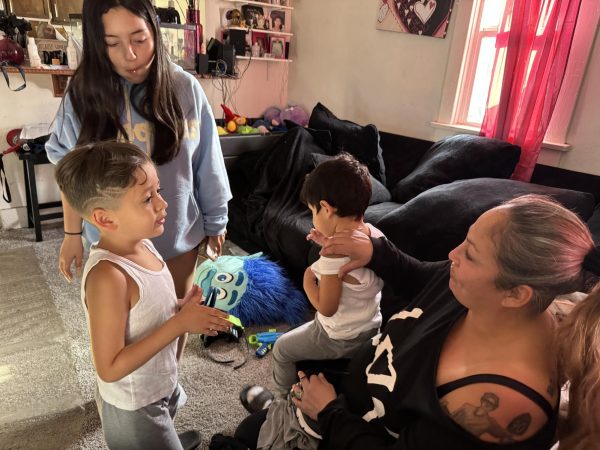
Cisneros would make her little sisters something to eat, give them a bath, put them to bed and then hit the streets again, repeating the cycle over and over.
Because her brother was sentenced to juvenile life and had a reputation in Lennox, along with her fathers and uncles who were known in the neighborhood, she was protected from sexual assault and trafficking. But she experienced everything else that she said sidetracked her education — drinking, drugs, skipping school.
“All the homies from Lennox would hang out at my mom’s house. Or we would post up on the block and drink 40s all night until the cops chased us home,” Cisneros said.
Before she turned 10, Cisneros was giving grown men needle and pen-ink tattoos. She served as a look-out when people put in work.
“They took care of me,” Cisneros said of the neighborhood.
She was locked up the first time in sixth grade for petty theft.
“I think I stole diapers,” she said.
She was in honors classes, but all her friends were in regular classes. In the seventh grade, when her mom refused to change her schedule so she could be with her friends, Cisneros dropped out of school.
For nearly 10 years, Cisneros cycled through juvenile halls, foster homes, lock-down placements, Probation camps and Dorothy Kirby (L.A. County Probation Department’s lock-down mental health facility for youth).
While volunteers came into some facilities to offer educational enrichment, Cisneros said the institutions are part of a vicious foster care-to-prison pipeline, rarely encouraging youth to attend college or preparing them for higher education.
The National Foster Youth Institute found that while youth impacted by the system can get into college, only 3 to 4% graduate.
Day blamed the system for not adequately preparing young people educationally and emotionally for college, including the failure of DCFS to hire staff that have overcome challenges that foster youth are experiencing.
“Too many [DCFS] staff don’t know how to deal with behaviors stemming from underlying trauma including sex trafficking, substance use, violence and loss,” Day said.
Day added that statistics reveal the system is also failing to adequately serve the mental health needs of youth in its care.
According to the Youth Suicide Prevention Project, “suicide is the leading cause of death for homeless youth, with more than 70% reporting suicidal thoughts and around 50% having a history of suicide attempts.”
Current and former foster youth are three times more likely to consider suicide, four times more likely to have made a suicide attempt in the past 12 months and five times more likely to be hospitalized following a suicide attempt when compared to non-foster care youth.
Youth impacted by the “child welfare system” – known by some survivors as the “family regulation system” – also experience higher rates of mental illness and substance use.
Zepeda said understanding the experiences of current and former foster youth is key in retaining students and preparing them to transfer to a higher education and/or a career.
“Colleges need to have a holistic approach,” he said. “Our students might face some challenges other students don’t.”
Filling in where families can’t
For many foster youth, they navigate the college admission, registration and financial aid processes, attend classes, find and pay for housing, transportation and all their other expenses, and work extra jobs to make it financially and emotionally without any parental or family support.
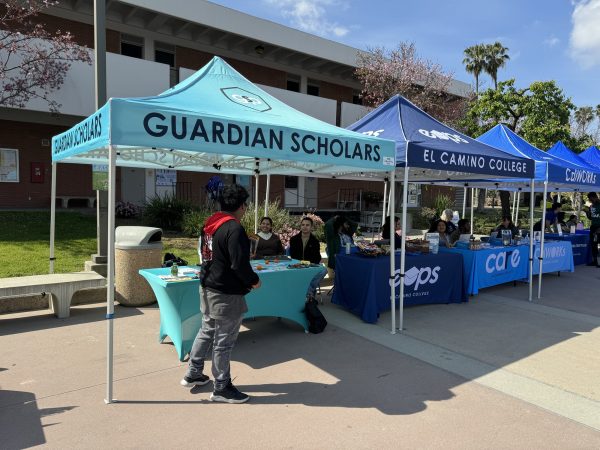
So, Guardian Scholars and Next Step also advocate on behalf of students with El Camino professors, departments and administrators.
Zepeda explained that students often need more time to complete assignments as they save the funds needed to get books or supplies. They benefit from added time on a test, or opportunities to express the emotional hardships they are carrying.
Silva further explained the important role Guardian Scholars and Next Step plays in building faculty understanding.
“Students who are system impacted are expected to perform as well as other students,” Silva said. “But a lot of the time they face systemic barriers. Students tell us they struggle with homelessness, mental health issues, looking for jobs and getting back on their feet after they’ve experienced foster care.”
Next Step success coach Jesse Marinero said he was inspired to become a community college counselor, because he didn’t get the support he needed at the community college he attended. He’s now in the graduate program at Cal State Long Beach.
“It took me to become a self-advocate, otherwise I wasn’t going to get what I needed,” Marinero said.
He said those experiences have made him a better advocate for ECC students.
Silva attended Nogales HS in Roland Unified School District, a school that she said was predominantly Mexican and Filipino.
“My friends had no access with their counselors. I had to be the bridge to share information I got from my counselor,” Silva said.
On both high school and college campuses, Silva said this is a common problem.
“Some counselors can’t reach some of the students who are marginalized or most impacted, because our students sometimes put up a barrier to protect themselves,” she said.
She just completed the college counseling program at Cal State Dominguez Hills.
“I wanted to be a community college counselor, because there’s a lot of outreach, and love and chances that get poured into minors. But, as soon as you cross 18 and come onto a college campus, you’re expected to know everything or figure it out,” Silva added.
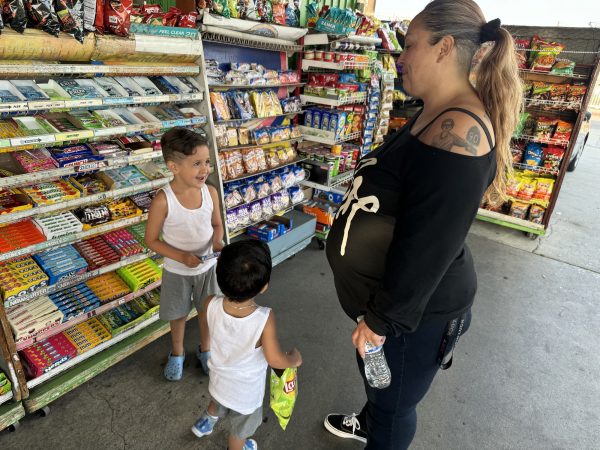
In June, when Cisneros graduated from El Camino, two of her children – Jonathan Orozco, 18, and Elisyannah Valdez, 16, also graduated from high school. To prevent DCFS placement of youth in group homes or foster homes outside their community, Cisneros has served as a foster parent to the children of friends and family members, including Orozco.
On a warm summer night, a crowd filled a dance studio in Hawthorne for a graduation party celebrating the two teens’ accomplishments. Giggling friends posed with goofy props at the photo booth and raided the candy bar.
Cisneros took the mic. “I pushed hard on them to finish school,” she said. She added that education was an essential ingredient for the healing and progress of both herself and her children.
“My life was chaotic from the start,” Cisneros said later to Warrior Life. “Home is supposed to build up your self-esteem. To give you love, stability and encouragement. I’ve been trying to create that for my kids. But college is where I found that for myself.”




